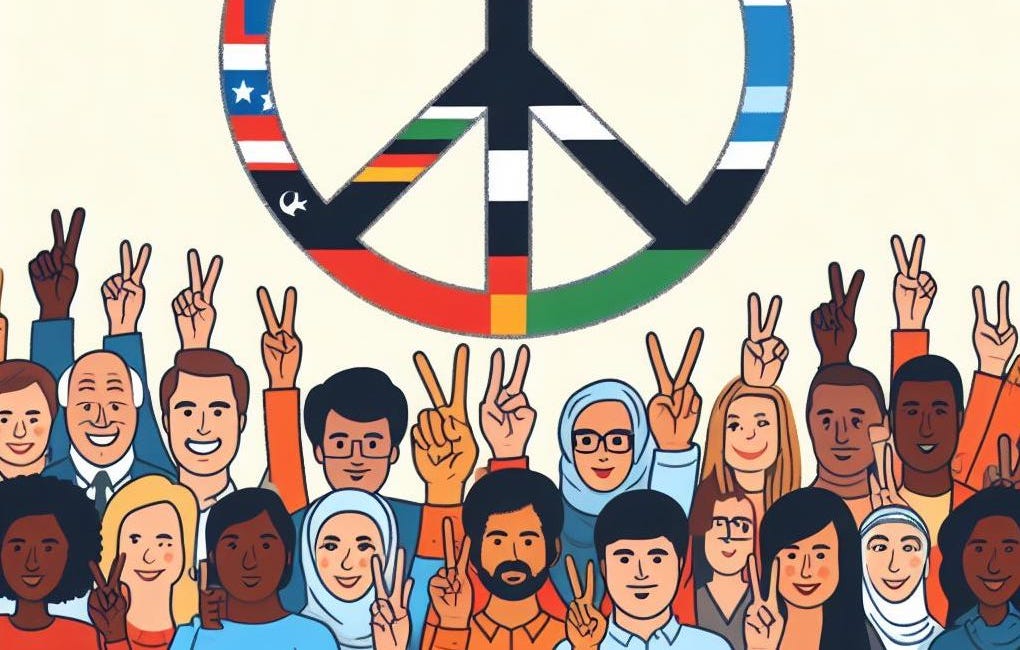How might we learn from the Northern Ireland peace process to address the Israel-Hamas war?
How might the International community align together to support the peace process?
How do we evaluate the lesser of two evils, the vengeance of terrorism or the war crimes of revenge against humanity?
Israel and Hamas are entrenched in self-righteous fundamentalism with little-to-no chance of compromise, negotiations over hostage releases, prolonged ceasefires and sustained humanitarian aid.
How might the International community create the conditions to move beyond this quagmire of never-ending dysfunctional polarizations that perpetuate terrorism and war?
The Northern Ireland peace process and the Good Friday Agreement provide insights into the principles for resolving the long-standing Israeli-Palestine conflict.
Mobilize public support to end terrorism and wars: The Northern Ireland peace process used referendums and public consultations to gain public support for resolving conflicts to make peace.
Public support within and outside of Israel is essential for building a lasting resolution between Israel and Palestine territories, Gaza and the West Bank.
Co-create generative dialogues to cultivate the ethics of equity governance: The Northern Ireland peace process included all relevant parties, including extremists.
The Israel-Palestine dispute requires involving all internal and external stakeholders to move beyond the dysfunctional polarizations of self-righteous fundamentalism between warring factions.
Redress the contextual factors that perpetuate systemic conflicts. The Northern Ireland process addressed issues related to governance, civil rights and and conflicting political identities.
Any Israeli-Palestine resolution requires negotiating fundamental agreements to assure mutual recognition, promote security, resolve territorial disputes, and implement a two-state accord.
Build functional triangulations of healthy alliances. The Northern Ireland peace talks benefitted by effective third party mediation, particularly the United States and the European Union.
An alliance of international mediators is essential for resolving the Israel-Palestine disputes.
Use a step-by-step approach for conflict resolution: The Northern Ireland peace process used a step-by-step approach to address small conflicts to build trust before working on challenging issues.
A strategic phased approach is also essential for the Israel-Palestine negotiations.
Assure guarantees and transparent accountability. The Northern Ireland agreement involved guarantees and transparent accountability processes to ensure compliance by all parties.
A robust system to monitor and verify commitments is essential in developing Israel-Palestine agreement.
Despite contrasting historical, cultural, and political contexts, the principles of Northern Ireland peace process provide insights into unraveling the political quagmire in the Israel-Palestine conflict.
How might we learn from the stewards of peace in Northern Ireland disputes?
Northern Ireland peace brokers reunite 25 years on
Tony Blair, Bill Clinton and Bertie Ahern reunite 25 years after bringing peace to Northern Ireland
Join #EquityMoonshot empowerment network
Learn how to ask and respond to complex questions about solving our self-inflicted wicked problems. #UniteEquityMuses to open, inspire and align our mindsets to co-design and build an equitable, regenerative, and sustainable future.
How might we liberate peace for humanity and free both sides of terrorism and war crimes?
The Israel-Hamas conflict calls on the international community to work on creating the conditions to prevent terrorists and war warriors from leading the pack. How might we understand and redress why: Religious, political, academic, social, community and corporate leadership training are naive about addressing the shadows of egocentric cults and the dar…





